New Indie Releases Celebrate Diversity

This December, we’ve been celebrating #IndieVoices, a series of election reactions from indie publishers specifically addressing diversity. This week’s new releases reflect the diversity of indie publishing, from a children’s book in Spanish, to religious diversity, to literature originating in a foreign language, to an exploration of a foreign land, and more.
La larga travesía de Endeavour
Celebrando 19 Años De Exploración Espacial

John D. Olivas
Icy & Michael Smith, editor
Gayle Garner Roski, illustrator
East West Discovery Press
Hardcover $19.95 (40pp)
978-0-9973947-2-6
Former NASA astronaut John D. Olivas highlights the space shuttle Endeavour’s momentous history as seen through the eyes of young Jojo as he visits the California Science Center in Los Angeles for the first time, in La larga travesía de Endeavour: Celebrando 19 años de exploración espacial, the Spanish-language version of Endeavour’s Long Journey. Color photographs, pictures by Gayle Garner Roski, fun facts, quizzes, and more make this a great choice for all los niños aventureros.
PALLAS GATES MCCORQUODALE (December 12, 2016)
Untangling Self
A Buddhist Investigation of Who We Really Are
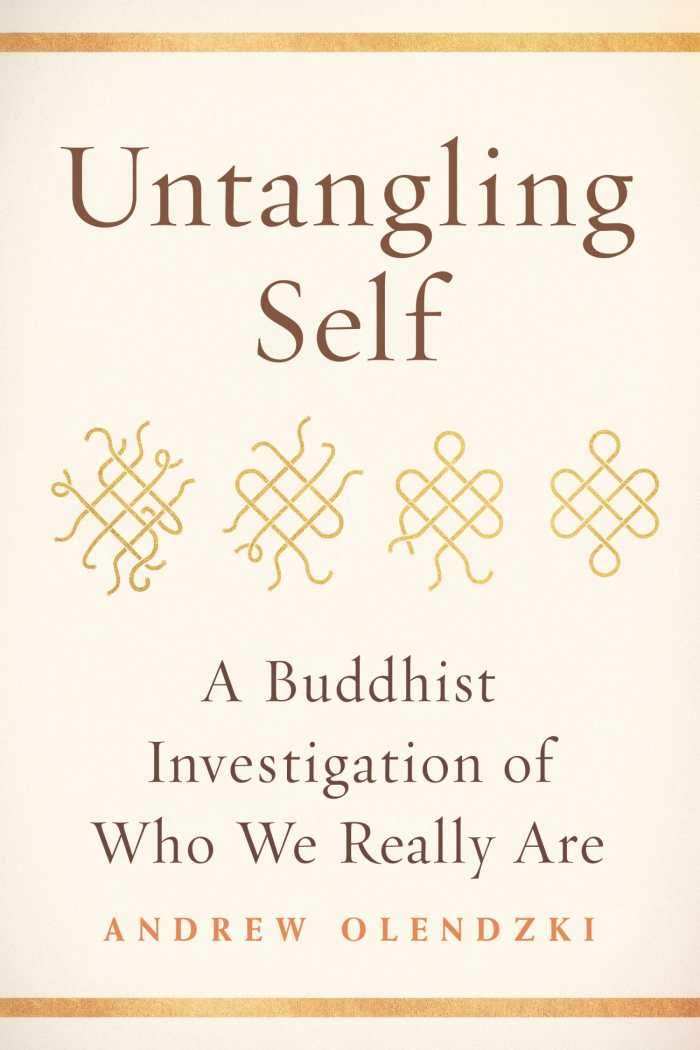
Andrew Olendzki
Wisdom Publications
Softcover $17.95 (200pp)
978-1-61429-300-2
Buddhist principles hold the key to social change, according to this title that works on many levels.
In Untangling Self, Andrew Olendzki offers an accessible, powerful discussion of how the ancient wisdom of Buddhism can transform individuals and cultures.
The former director of the Insight Meditation Society and the Barre Center for Buddhist Studies, Olendzki is deeply grounded in Buddhist thought and the wisdom of ancient texts. His book offers many astute insights on the challenges of mindfulness in contemporary society, noting that in many businesses, the military, and other groups seeking a “competitive edge,” there is a considerable “enthusiasm for mindfulness these days, as long as it does not threaten to make us wise.” These superficial approaches can do more harm than good, he warns, strengthening the bonds that bind us. What is needed is the transformational awareness that comes with continual practice and presence.
The book forwards a compelling review of the basic tenets of Buddhism, exploring how mindful awareness and the intentional “atrophy” of desire enable people to let go of suffering, along with anger, greed, and other “toxic” thoughts. Its focus is on observing the self, described as the fleeting, insubstantial result of grasping for possession “like a monkey swinging through the trees.”
Early chapters offer an unusually lucid discussion of the self in the context of Buddhist thought, richly outlined with stories and examples, many from traditional Buddhist texts. But closing chapters truly set apart this exploration by moving beyond the individual to consider the equanimity that comes when we let go of the self, and how this can transform society. “Generosity, kindness, and wisdom can save us from ourselves. Our ancestors in India discovered this long ago and followed a noble path to the extinction of suffering,” Olendzki writes.
Untangling Self works on many levels for many audiences: those looking for a succinct, engaging introduction to Buddhist teachings; those seeking to deepen their understanding and meditation practice; and those exploring provocative solutions to the human condition of suffering.
KRISTEN RABE (November 28, 2016)
Chronicle of the Murdered House
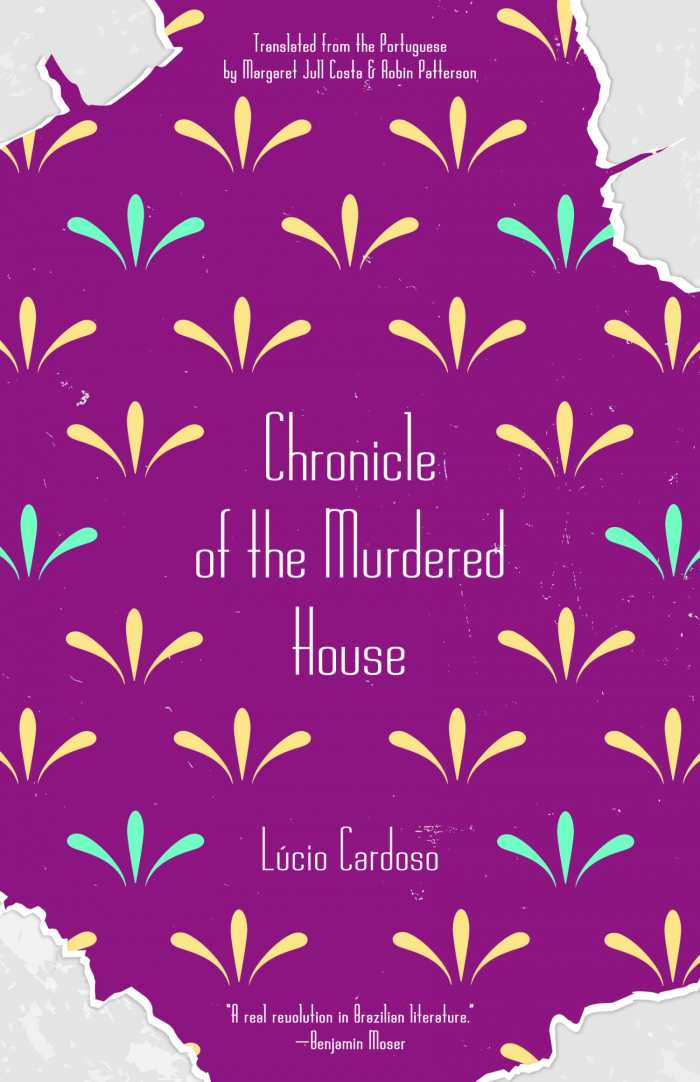
Lúcio Cardoso
Margaret Jull Costa, translator
Robin Patterson, translator
Open Letter
Softcover $17.95 (592pp)
978-1-940953-50-2
Buy: Local Bookstore (Bookshop)
This gorgeous, complex, and heartbreaking Brazilian masterpiece is full of lurid turns and surprising reveals.
Lúcio Cardoso’s lurid and voluminous masterpiece Chronicle of the Murdered House follows the unraveling of the Meneses family, a once-proud Brazilian clan undone by internal mistrust.
From the moment she descends from Rio to take her place on the Meneses estate, Nina acts as a lightning rod for its residents. She is a sultry and captivating figure around whom their fears and jealousies roil. Her own disappointment at the dilapidated state of the family’s home and fortunes makes these tensions no easier to navigate.
Her brother-in-law shadows her suspiciously, seeing deception in every interaction with the staff. Her sister-in-law hates the way that she tempts others; her husband does not trust her in the least. Bullets are discharged; dark plans are hatched. And whether the suspicions around her are founded or not, they drive Nina out of the country. Her exile, half self-imposed, lasts for over a decade—and when it ends, reuniting her with her son Andres, life on the estate becomes no less tenuous.
A captivating opening reveals devastating secrets, if of dubious veracity, that introduce mistrust of Nina into the audience’s consciousness, too—far before she is allowed to make a case for herself. Accounts trade between members of the family, the diary of a servant, and accounts from priests and doctors intermittently called upon to attend to the decaying clan’s disasters. All are privy to partial truths; all have awed or hateful opinions of Nina. As much as this is a story that involves questionable choices on Nina’s path, it is also one about her redemption, and brutal realities are revealed with sympathy.
Pages pass quickly under the influence of heady intrigue as Nina battles for her rightful place on her husband’s estate and plans punishments for those who undermined her. Even at her most cruel, she comes across as complex: a fading beauty, wronged, furious, pathetic, and ferocious, by turns. Questions are raised: can lines be crossed beyond which forgiveness is not possible? Can love survive severe betrayals? What is the true meaning of absolution? Cardoso’s novel is complex, gorgeous, and heartbreaking, well justifying its place in Brazil’s literary canon.
MICHELLE ANNE SCHINGLER (November 17, 2016)
Taking My God for a Walk
A Publisher on Pilgrimage
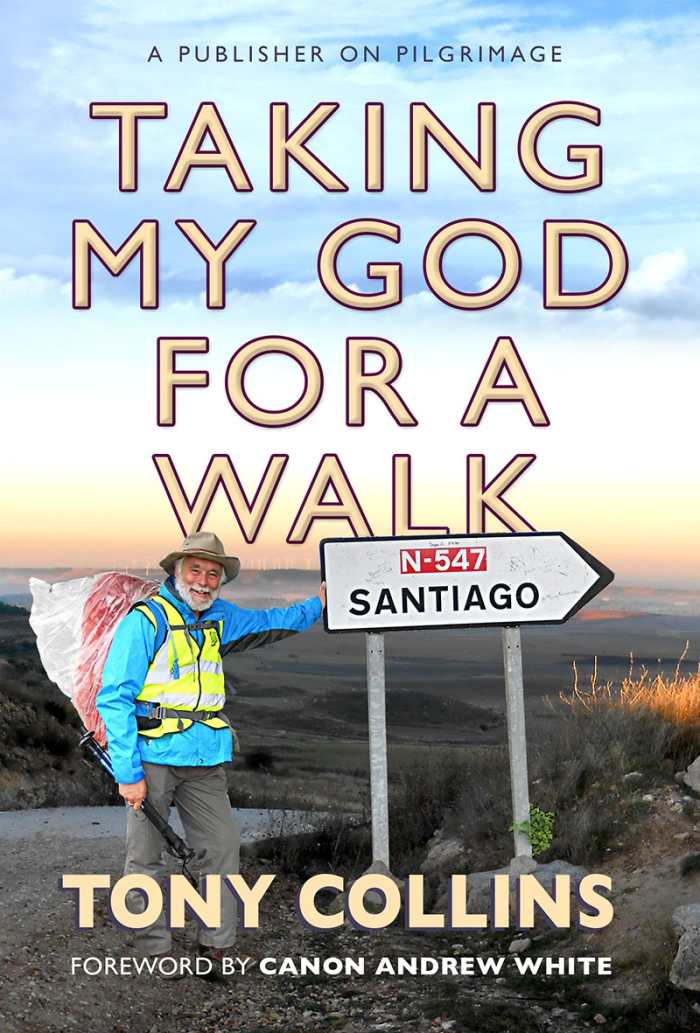
Tony Collins
Kregel Publications
Softcover $16.99 (416pp)
978-0-85721-773-8
This is an entertaining, informative, and moving account of one man’s push down the Camino de Santiago.
In Taking My God for a Walk, veteran publisher Tony Collins sets off down the Camino de Santiago, using his considerable knowledge as a pilgrim’s staff. This religious travel journal is by turns playful, erudite, and pensive, certain to appeal to both seekers and skeptics.
At a crossroads in his career and his personal life, Collins decided to undertake a sabbatical to walk the Way of Saint James. It was both a curious and a fitting choice for Collins, a Christian who spent his career publishing religious works but who calls himself a critical skeptic throughout the book. Spurts of yearning, awe, and distaste for those who would declare modern people “spiritually arid” characterize the text, which is about careful seeking and resisting urges to plow through activities—even those meant to offer respite.
Covering the pilgrimage route in just over a month—a length of time that, Collins admits, seems too swift—Collins imparts the history of the famed towns and villages that he passes through. He records stimulating conversations with fellow pilgrims and robustly celebrates local fare, from wine fountains to smelly cheeses. Droll comments about “unbelievably untidy shrines” come alongside meditations on the works of other religious writers, and on the notion of religiosity itself. Even at its most didactic, this is a jovial, invigorating text.
Those who yearn to walk the Camino themselves will be charmed and inspired by Collins’s journey, which doesn’t promise miracles but does indicate that peace is available to those who truly seek it. His minor mishaps and lessons learned spill into good advice to tuck between the pages of guidebooks, and his assurances that the path is populated by fellow travelers bearing wonderful stories are a push toward starting out.
Collins notes that in his publishing career, he evaluates manuscripts with one preliminary measure: does it “merit the felling of a tree?” The answer is certainly yes with Taking My God for a Walk, an entertaining, informative, and moving glimpse at an increasingly popular pilgrimage.
MICHELLE ANNE SCHINGLER (November 2, 2016)
Walter and the Wallet
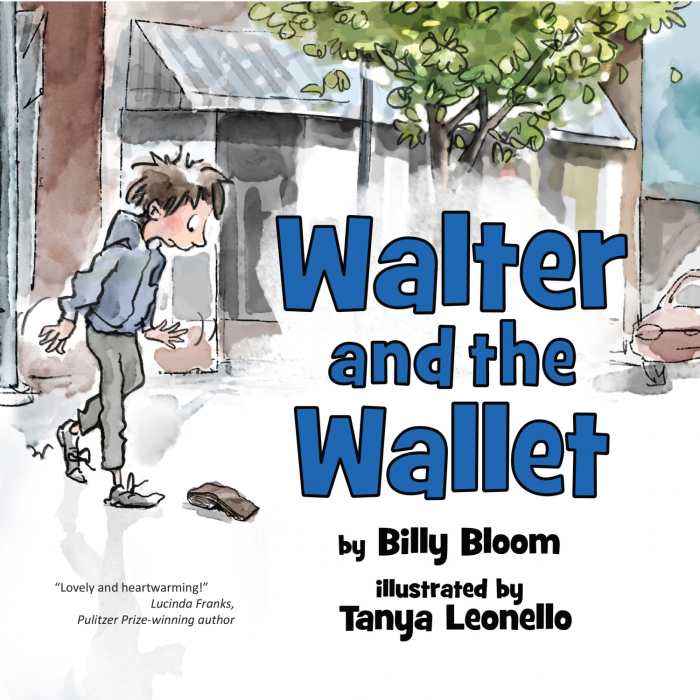
Billy Bloom
Tanya Leonello, illustrator
Eifrig Publishing
Hardcover $14.99 (36pp)
978-1-63233-116-8
Walter Whippingdale’s awful day takes an unexpected turn for the better when he stumbles across an abundance of cash, in Walter and the Wallet, by Billy Bloom. Rolling, rhyming four-line stanzas, accompanied by Tanya Leonello’s expressive watercolors, build excitement as Walter buzzes with the thrill of endless possibilities, and warm the heart as he discovers the rewards of honesty and giving. Perfect for a story-time read-aloud or programs that promote virtues and character building.
PALLAS GATES MCCORQUODALE (December 12, 2016)
At What Cost
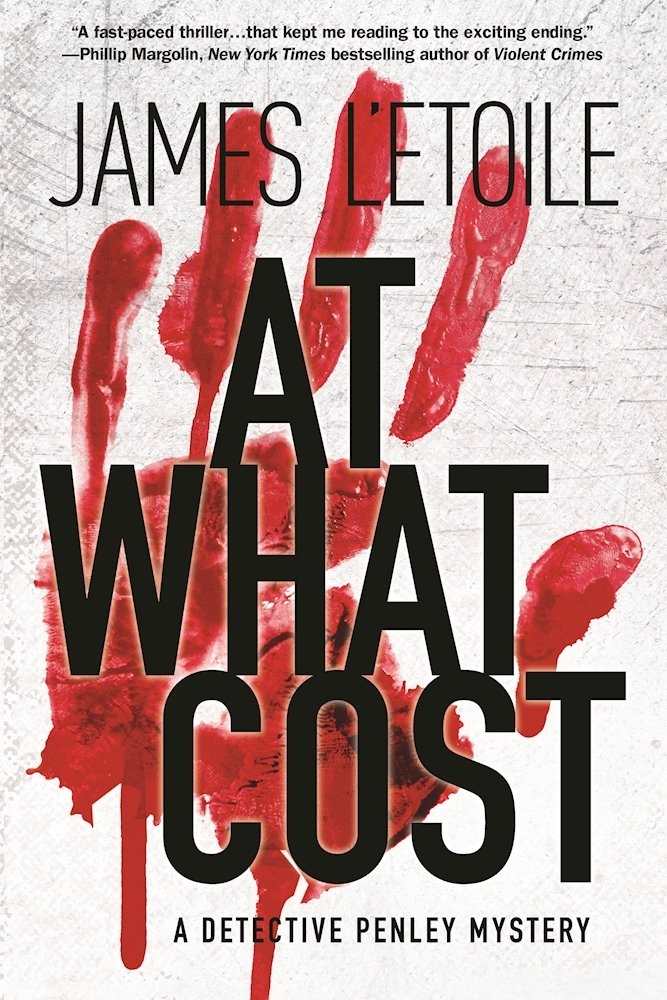
James L’Etoile
Crooked Lane
Hardcover $25.99 (304pp)
978-1-62953-995-9
In a dark and unrelenting thriller, a father must hunt down a killer, all while trying to save his own sick and ailing son—until twists in the case reveal a sinister connection between the two.
Detective John Penley and his partner, Paula Newberry, of the Sacramento Police Department, together must lead the investigation into three murders in six weeks. Each body is missing its internal organs, but, for Penley, the creepiest factor of all is the personalized message the killer left behind for him—a message attached to a human kidney. Penley, who has a son on the kidney-transplant waiting list, suddenly realizes the attack may be personal—and unless he is able to outwit the sadistic and cunning killer, he may fall into a trap that could mean the end of his career for good.
At What Cost is a mystery that presents an intriguing moral dilemma at its center: Detective Penley must decide whether to fulfill his duty as an officer, trusting that his son will one day get the kidney that he needs, or to conspire, when the opportunity presents itself, with the very man he is trying to capture, in order to get his son the operation that could save his life. The first in this gripping series, At What Cost finds its power in the moral questions and gray areas that it raises, even as it delivers unrelenting suspense and action. Though the final twist at the end may lead to some additional questions, At What Cost is a strong debut mystery from a writer confident in his craft.
STEPHANIE BUCKLIN (November 11, 2016)

Seth Dellon is director of audience development at Foreword Reviews. You can meet him or hear him speak at most of the events Foreword attends, and contact him at seth@forewordreviews.com.
Seth Dellon
